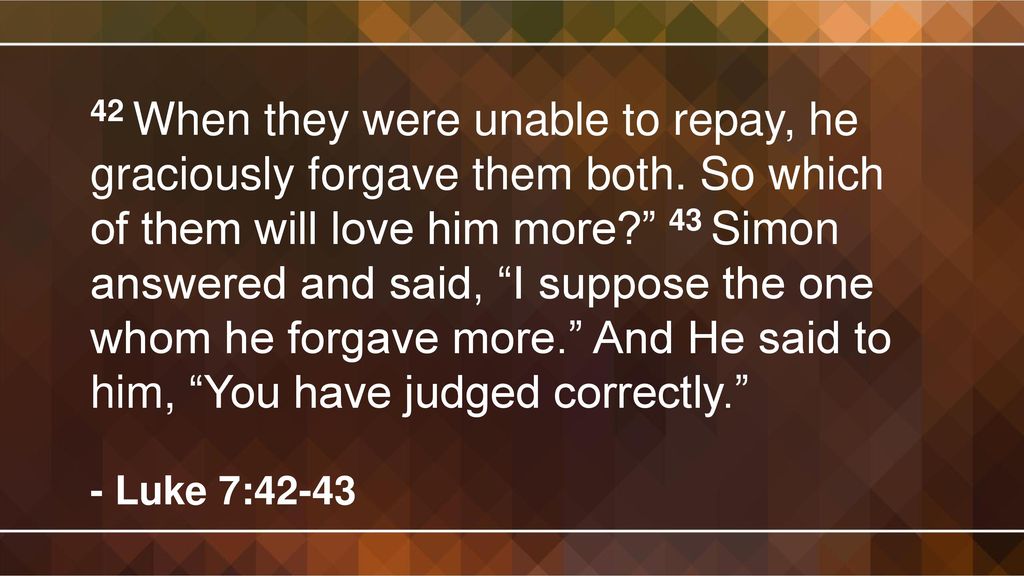The parable in Luke 7:41-42 encapsulates a principle even understood in the world, which is the greater the mercy shown, the greater the love should be given to the one showing mercy. Therefore, virtually every human being could come up with the right answer to Jesus’ question at the end of v.42. Even this Pharisee has no problem discerning the lesson of this parable, as it relates to earthly matters, but he can’t grasp the most fundamental spiritual issues as they relate to himself. His mind cannot connect spiritual dots because he despises the wisdom of God in the gospel.
Jesus knows the crux of the issue and in a few verses he will relate this parable to sins and the forgiveness of the sins. What this parable demonstrates is that this Pharisee thinks the woman’s sin is 10 times more than his own. Implication—he’s more savable than this woman; he’s not going to need as much of God’s forgiveness to get him into heaven. His main objective in life is to watch out for contaminations from the outside, since he is fairly clean on the inside.
Simon, the Pharisee is thinking along these lines: “I only owe a month and a half wages. I could work a little bit and pay off that debt in no time.” In a similar way we might think, “I’m not like the unbelievers or even some of the immoral church goers I know, so relatively speaking, my sin is really on the minor side of the scale. So I can just serve a little more at church or put more money in the offering plate or give to someone in need and surely, that will please God enough to cover over my tiny sin issue.” Friends, we must stay as far away from this deadly mindset as we can. You and I and everyone else in the world are the debtor who owed 500 denarii. In fact, the amount we owe is incalculable and cannot be measured by human means for there does not exist a number or even a concept large enough to tally up the magnitude of God’s forgiveness. To illustrate: How many sins have you been forgiven of this month?; how about this week?; how about today?
This parable has introduced the correlation of love, that is, the correlation of our love for Christ in relationship to the gracious forgiveness from Christ.

